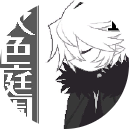Ôn thi vào 10
Các câu hỏi tương tự
Stretching more than five kilometers (1)…………..and researching heights of 200 meters, the main carven of Hang Son Doong is large enough to house an entire New York City block.In 2013 Hang Son Doong (2)……………..to the public for the first time. The journey to Hang Son Doong is not for the faint-hearted. Involving two days of intense jungle trekking and river crossing to reach the entrance, nights are spent camping inside the cave and the nearby Hang En, now known to be the third (3)…………..cave in the...
Đọc tiếp
Stretching more than five kilometers (1)…………..and researching heights of 200 meters, the main carven of Hang Son Doong is large enough to house an entire New York City block.
In 2013 Hang Son Doong (2)……………..to the public for the first time. The journey to Hang Son Doong is not for the faint-hearted. Involving two days of intense jungle trekking and river crossing to reach the entrance, nights are spent camping inside the cave and the nearby Hang En, now known to be the third (3)…………..cave in the world. Once inside, hikers are expected to climb, crawl and swim through underground rivers to arrive at the end of the cave. It’s an (4)…………….like no other.
Despite the physical demands, guests are perfectly cared (5)………….. Two caving experts, three local guides, two chefs, two park rangers and 20 porters join (6)……………expedition. They ensure everyone’s welfare and safety, and the preservation of the cave is looked after with expert precision.
1. A. wide B. tall C. long D. big
2. A. was opened B. is opened C. was opening D. opens
3. A. large B. larger C. largest D. enlarge
4. A. adventure B. tour C. trip D. journey
5. A. off B. for C. down D. with
6. A. plenty B. few C. many D. every
Stretching more than five kilometers …………..and researching heights of 200 meters, the main carven of Hang Son Doong is large enough to house an entire New York City block.
A. wide B. tall C. long D. big
Viết dạng đúng của từ trong ngoặc
1.He hates (answer) the phone,and very often just lets it ring
2.Trinh Cong Son is one of the most well-known (music) in Viet Nam
3.Son Tung MTP is a great (sing)
4.(Fortunate),the step mother was very cruel to her
5. We all looked (health) after the summer holiday.
6.There are many (culture) programs at the Festival in Hue
26. Mark the letter A, B, C or D on your answer sheet to indicate the sentence that is almost in meaning as the sentence given.“ We want to send our son to a university in the UK.” they said. A. They said that they wanted to send their son to a university in the UK.B. They said that they did wanted to send their son to a university in the UK.C. They said that they want to send their son to a university in the UK.D. They said that they did want to send their son to a university in the UK.27. Mark...
Đọc tiếp
26. Mark the letter A, B, C or D on your answer sheet to indicate the sentence that is almost in
meaning as the sentence given.
“ We want to send our son to a university in the UK.” they said.
A. They said that they wanted to send their son to a university in the UK.
B. They said that they did wanted to send their son to a university in the UK.
C. They said that they want to send their son to a university in the UK.
D. They said that they did want to send their son to a university in the UK.
27. Mark the letter A, B, C or D on your answer sheet to indicate the sentence that is almost in
meaning as the sentence given.
Although the weather was bad, we went out for a picnic.
A. Despite the bad weather, we went out for a picnic.
B. Despite the weather was bad, we went out for a picnic.
C. Despite of the bad weather, we went out for a picnic.
D. Despite the bad weather was, we went out for a picnic.
28. Mark the letter A, B, C or D on your answer sheet to indicate the sentence that is almost in meaning as the sentence given.
You should use a dictionary to check the meaning of new words.
A. You should use a dictionary to look up new words.
B. You should use a dictionary looking up new words.
C. You should use a dictionary to looking up new words.
D. You should use a dictionary to look new words up.
29. Mark the letter A, B, C or D on your answer sheet to indicate the sentence that is made from the given cues.
Today’ s cities / much / large / cities / previous times.
A. Today’s cities are much larger than cities in previous times.
B. Today’s cities are more larger than cities in previous times.
C. Today’s cities are most larger than cities in previous times.
D. Today’s cities are less larger than cities in previous times.
30. Mark the letter A, B, C or D on your answer sheet to indicate the sentence that is made from the given cues.
If / you / not know / how / operate the machine, you / read / instruction manual.
A. If you don’t know how to operate the machine, you should read the instruction manual.
B. If you not know how to operate the machine, you should read the instruction manual.
Last year, we had a nice holiday. My friend and I went to the seaside for a month. I had been to the seaside several times before, but this was the first time for my friend. Naturally, it was the great event for him. Finally, the day came. It was a fine morning. We got up very early because we wanted to leave home after breakfast. We made the journey by car. We reached the seaside at noon. We spent many hours on the beach. We enjoyed making castles and channels in the sand. People said we ought...
Đọc tiếp
Last year, we had a nice holiday. My friend and I went to the seaside for a month. I had been to the seaside several times before, but this was the first time for my friend. Naturally, it was the great event for him. Finally, the day came. It was a fine morning. We got up very early because we wanted to leave home after breakfast. We made the journey by car. We reached the seaside at noon. We spent many hours on the beach. We enjoyed making castles and channels in the sand. People said we ought to spend at least a few weeks at the seaside. If we could stay longer, so much the better.
1. How long did the writer and his friend spend at the seaside?
A. week B. A few weeks C. A month D. A few months
2. Who went to the seaside the first time?
A. The writer B . The writer and his friend. C. The writer/s family D. The writer/s friend.
3. What was the weather like on the day they started their journey to the seaside?
A. It was bad B. It was rainy C. It was snowy D. It was nice.
4. How did they travel to the seaside?
A. By car B. By train C. By bus D. By air
5. When did they reach the seaside?
A. At 8 o/clock B. At 12 o/clock C. At 4 p.m D. At 9 p.m
Mark the letter A, B, C or D to indicate the word(s) CLOSEST in meaning to the bold word(s) in each of the following questions.1. Mr Browns new garage was not wide enough for the camper van to fit in.A. old enough B. so big C. very long D. too narrow2. We got to the beach after 2 hours travelling by bus.A. left B. reached C. welcomed D. swamMark the letter A, B, C or D to indicate the word(s) OPPOSITE in meaning to the b...
Đọc tiếp

Mark the letter A, B, C or D to indicate the word(s) CLOSEST in meaning to the bold word(s) in each of the following questions.
1. Mr Brown's new garage was not wide enough for the camper van to fit in.
A. old enough B. so big C. very long D. too narrow
2. We got to the beach after 2 hours travelling by bus.
A. left B. reached C. welcomed D. swam
Mark the letter A, B, C or D to indicate the word(s) OPPOSITE in meaning to the bold word(s) in each of the following questions.
3. Jane says she is going to get married to a wealthy businessman.
A. famous B. poor C. mean D. positive
4. Human beings have launched many man-made satellites into outer space.
A. special B. enormous C. natural D. expensive
Mark the letter A, B, C or D to indicate the option that best completes each of the following exchanges.
5. - "How do you do?" - “_____”
A. I'm fine. Thank you. B. Happy to see you here.
C. Not too bad. And you? D. How do you do?
6. - "What's on the television tonight? - “_____”
A. A football match after the news B. At half-past nine
C. The film is good D. I will go to the cinema
Read the following passage and mark the letter A, B, C or D to indicate the correct answer to each of the questions from 7 to 11.
Every year several thousand people died in car accidents in Great Britain. And between one and two hundred thousand people are hurt.
There are rules to make the roads safe, but people do not always obey the rules. They are careless. If everybody obeys the rules, the road will be much safer. How can we make the roads safer?
Remember this rule. In Great Britain, traffic keeps to the left. Cars, buses and bikes must all keep to the left side of the road. In most other countries, traffic keeps to the right.
Before crossing the road, stop and look both ways. Look right and left. Then, if you are sure that the road is clear, it is safe to cross the road. If you see small children or very old people, help them to cross the road. We must teach our children to cross the road safely. We must always give them a good example. Small children must not play in the street.
7. If we want to make the roads safer, _____.
A. everybody must be careful and obey the traffic rules
B. traffic should keep to the right
C. we should not cross the road too often
D. all the roads must be clear
8. If you ride a bike in Great Britain, you must ride_____.
A. on the right side of the road
B. on the left side of the road
C. in the middle of the road
D. behind the buses
9. Which of the following is NOT true, according to the passage?
A. Few people die in traffic accidents in Great Britain.
B. In our country traffic keeps to the right.
C. Cars kill many people every year.
D. Streets are not safe places for playing.
10. What does it mean by "The road is clear."?
A. The road is not noisy.
B. The road is very clean.
C. There is no car or bus running.
D. You can see clearly on the road.
11. The safe way to cross the road is to_____.
A. look right only B. look left, and look ahead
C. run across the road without looking D. look both ways, right and left
Read the following passage and mark the letter A, B, C or D to indicate the correct word or phrase that best fits each of the numbered blanks from 12 to 16.
Coronavirus germs live in people's throats and mouths. When someone who has the coronavirus coughs or sneezes or breathes out, the germs come (12)______their mouth in tiny drops of water.
Though you can't see the germs, you can sometimes see these tiny drops. In cold weather, they make a cloud of steam! So if someone else (13)______ breathes in the air with the coronavirus germs in it, they would probably get the illness.
It's easy to get the coronavirus germs from inside your body on your hands (14)______you touch your nose or your mouth. If the person with the coronavirus germs on their hands uses a door, the invisible germs can live on the handle for hours. When someone else opens the door, they (15)______the germs on their hands too. And if they touch their nose or mouth, the germs can get into their body.
So you (16)______also catch the coronavirus by touching things that someone with the virus has already touched.
12. A. into B. out of C. to D. because of
13. A. accidentally B. generally C. decisively D. usually
14. A. what B. when C. which D. unless
15. A. make B. bring C. get D. search
16. A. should B. need C. must D. can
Good luck các em!
23-32. 𝙍𝙚𝙖𝙙 𝙩𝙝𝙚 𝙛𝙤𝙡𝙡𝙤𝙬𝙞𝙣𝙜 𝙥𝙖𝙨𝙨𝙖𝙜𝙚 𝙘𝙖𝙧𝙚𝙛𝙪𝙡𝙡𝙮 𝙖𝙣𝙙 𝙘𝙝𝙤𝙤𝙨𝙚 𝙩𝙝𝙚 𝙗𝙚𝙨𝙩 𝙤𝙥𝙩𝙞𝙤𝙣 𝙩𝙤 𝙛𝙞𝙩 𝙚𝙖𝙘𝙝 𝙨𝙥𝙖𝙘𝙚.The London Underground, (23)_______ the Tube, is the popular public transportation system of London. The concept for the London Underground was first (24)_______ in the 1830s, by a lawyer called Charles Pearson. (25)_______, not until 1863 was the first section of the Underground built, and opened to the public. On its (26)_______ day, it transported 38,000 passengers, and within the first year it had been u...
Đọc tiếp
23-32. 𝙍𝙚𝙖𝙙 𝙩𝙝𝙚 𝙛𝙤𝙡𝙡𝙤𝙬𝙞𝙣𝙜 𝙥𝙖𝙨𝙨𝙖𝙜𝙚 𝙘𝙖𝙧𝙚𝙛𝙪𝙡𝙡𝙮 𝙖𝙣𝙙 𝙘𝙝𝙤𝙤𝙨𝙚 𝙩𝙝𝙚 𝙗𝙚𝙨𝙩 𝙤𝙥𝙩𝙞𝙤𝙣 𝙩𝙤 𝙛𝙞𝙩 𝙚𝙖𝙘𝙝 𝙨𝙥𝙖𝙘𝙚.
The London Underground, (23)_______ the Tube, is the popular public transportation system of London. The concept for the London Underground was first (24)_______ in the 1830s, by a lawyer called Charles Pearson. (25)_______, not until 1863 was the first section of the Underground built, and opened to the public. On its (26)_______ day, it transported 38,000 passengers, and within the first year it had been used by 9.5 million passengers.
The system has been improved (27)_______ over the past century, and now it includes twelve lines serving Greater London, operating from 5.00 am through to 1.00 am, Monday to Saturday. On Sundays, it operates a (28)_______ service. For the passengers' convenience, the system is also interconnected (29)_______ the over-ground train network, which links to other parts of the country outside London.
To enable passengers (30)_______ around easily, London Underground maps are distributed freely at all stations. Along with a plan of the Tube system, the free maps contain useful tips for safe (31)_______ efficient of travelling. The map itself is a design classic, with the various lines indicated in different colours, and clearly indicated junctions (31) the stations where passengers can change between lines.
Question 23. *
A. and
B. or
C. but
D. by
Question 24. *
A. proposed
B. initiated
C. suggested
D. recommended
Question 25. *
A. Consequently
B. Therefore
C. However
D. Hence
Question 26. *
A. closing
B. opening
C. dating
D. ending
Question 27. *
A. massively
B. romantically
C. greatly
D. mainly
Question 28. *
A. reduce
B. reduced
C. reducing
D. reduces
Question 29. *
A. to
B. in
C. with
D. on
Question 30. *
A. getting
B. to get
C. gets
D. get
Question 31. *
A. and
B. or
C. not
D. show
Question 32. *
A. shows
B. shown
C. to shown
D. showing
Ai giúp mk với 10h mk nộp rồi
This is a difficult problem. I wish i ... the answer.A. knew B. knowing C. know D. knownPeter ... have lunch in the school canteen when he was in grade 6.A. was used to B. is used to C. used to D. gets used toTraffic ... in Vietnam usually occur in such big cities as Hanoi and Ho Chi Minh City.A. jams B. system C. safety D. lightYou will become ill ... you stop working so hard.A. until B. unless C...
Đọc tiếp
This is a difficult problem. I wish i ... the answer.
A. knew B. knowing C. know D. known
Peter ... have lunch in the school canteen when he was in grade 6.
A. was used to B. is used to C. used to D. gets used to
Traffic ... in Vietnam usually occur in such big cities as Hanoi and Ho Chi Minh City.
A. jams B. system C. safety D. light
You will become ill ... you stop working so hard.
A. until B. unless C. if D. when
City dwellers are more likely to ... stress and anxiety than people who live in the countryside.
A. put up with B. get over C. suffer from D. look forward to
Choose the sentence that is closest in meaning to each of the given sentences, 51. I last met him ten years ago.A. I have recently seen him.B. I havent seen him for ten years.C. The last time I saw him was last year.D. I am going to meet him in ten years time.52. They use this pencil to draw thick lines.A This pencil is used to draw thick lines.B. This pencil is used to drawing thick lines.C. Thick lines used to be drawn with this pencil.D. Thick lines are used to being drawn by this pencil.53....
Đọc tiếp
Choose the sentence that is closest in meaning to each of the given sentences,
51. I last met him ten years ago.
A. I have recently seen him.
B. I haven't seen him for ten years.
C. The last time I saw him was last year.
D. I am going to meet him in ten years' time.
52. They use this pencil to draw thick lines.
A This pencil is used to draw thick lines.
B. This pencil is used to drawing thick lines.
C. Thick lines used to be drawn with this pencil.
D. Thick lines are used to being drawn by this pencil.
53. He said to her, “I'll help you when you need me."
A. He told her that he will help her when she needs me.
B. He said that he would help you when she needed him.
C. He promised that he would help her when she needed him.
D. He asked her whether she would help him when he needed her.
54. He wishes he could have more time to go swimming every day.
A. If he could swim, he would have more time every day.
B. If he had more time, he would go swimming every day.
C. He says that he has more time to go swimming every day.
D. He is pleased that he has more time to go swimming every day.
55. Before he left the room, he turned off all the devices to save electricity.
A. After he turned off all the devices to save electricity, he left the room.
B. He left the room without turning off all the devices to save electricity
C. He left the room although he did not turn off all the devices to save electricity.
D. Because he was in the right room, he turned off all the devices to save electricity


















